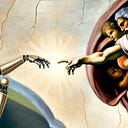The rise of the internet has altered the world immeasurably, making things our ancestors would have considered impossible not just viable but commonplace. We can communicate over vast distances in seconds, access all kinds of information and order, pay and have anything from a bottle of water to a semi-autonomous vehicle delivered directly to our homes, all from a handheld device.
The next wave in the digital age would seem just as baffling to our ancestors as it will be to many of us. The idea that a person can send or trade a digital representation of an asset or an idea — known as a token, to anywhere in the world, instantly, with no possibility of it being hacked or corrupted, will raise many eyebrows. Yet this is the kind of global economy we are edging towards — a token economy.
Tokens can be used to define virtually any form of value and can be exchanged for any other token, representing any other form of value. At present, a dollar can’t be directly exchanged for a Facebook like. In the token economy, that, and any other form of token exchange will be both possible and easily accessible.
As will the ability to specify precisely how a token will function. Since tokens are essentially lines of code, they are also programmable, allowing us to create specific rules for tokens to follow when exchanged or converted, imposing constraints or freeing up all kinds of possibilities with regards to how they will be used.
For instance, a token could be programmed so that it can’t be exchanged for diamonds that are mined in locations known for their use of slave labour. In this way the token is not just a utility but also something that expresses social values, changing our economy from a single value model to a multi-value model where many different types of value and micro-economies can be created, while maintaining the possibility for instant exchange.
In our current economic model, an investor’s share in a company and a worker’s salary follow very different economic formulas. It creates a divide between those who make money off their investments and those who sell their labour for money without ownership.
Tokens merge investment capital with liquid exchange capital, meaning that anyone who is paid in tokens or uses them as a method of exchange automatically becomes an investor, thus removing the notorious divide. When you work for a token system, you’re working for yourself and for the whole organization.
Distributed Ledger Technology is at the heart of the tokenization movement. Its ability to record and validate the exchange of any form of value, provides the infrastructure upon which the token economies of the future will be built.
DLT has begun decentralizing the economy, shifting our dependence on centralized authorities to global information networks that follow distributed consensus models managed by the masses. This new internet era will see information networks and economic organizations merge into one, creating an electronic whirlwind of cryptography, technology and huge sums of money.
The token economy may be a difficult concept for people to wrap their heads around, as will the idea of decentralization and the notion that a network can’t be tampered with — but the tipping point will come, and once it does there will be no going back.
Until then, we will be working tirelessly towards reaching the tipping point through our educational and community efforts as well as our research on the next generation of DLT for peaq.
